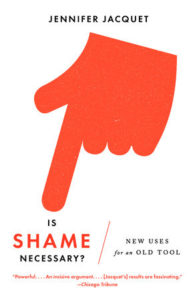Germany has halted arms sales to Riyadh and agreed with France to place a travel ban on several Saudi nationals following the killing of Jamal Khashoggi, raising international pressure on the kingdom to shed light on the murder even as Europe prevaricates over unilateral action in response, The Wall Street Journal reports:
German foreign minister Heiko Maas said Monday that the travel ban covered “18 Saudi nationals who are allegedly linked to this deed.” Separately, a spokesman for the German government said its arms sales to Saudi Arabia—including deals that have already been agreed—would stop. Among the canceled deals: the delivery of 20 warships.
The Netherlands is proposing a new EU sanctions regime that would target individuals accused of human rights abuses worldwide, RFE/RL reports:
Government officials from all 28 EU member states will meet in The Hague on November 20 to discuss the Dutch proposal outlined in a position paper called Towards An EU Global Human Rights Sanctions Regime. The document, seen by RFE/RL on November 19, says the proposed sanctions regime “differs significantly from the existing EU geographically limited sanctions regimes,” which it says aim to “change state behavior and are therefore political in nature.”
 The Dutch proposal stems from appeals by Dutch MPs and by Magnitsky’s former employer, Bill Browder, to create an ‘EU Magnitksy Act’ in his name, the EU Observer adds. But Dutch diplomats have removed all references to Russia from their proposal for fear that Russia-friendly governments, such as those in Austria or Italy, could block the move to please Moscow.
The Dutch proposal stems from appeals by Dutch MPs and by Magnitsky’s former employer, Bill Browder, to create an ‘EU Magnitksy Act’ in his name, the EU Observer adds. But Dutch diplomats have removed all references to Russia from their proposal for fear that Russia-friendly governments, such as those in Austria or Italy, could block the move to please Moscow.
“Sergei Magnitsky gave his life to fighting corruption and it is the least we can do to remember him and honour his sacrifice in the name of the legislation his heroic and courageous acts have inspired,” according to Browder, the head of the London-based Magnitsky Global Justice Campaign.
 It is heartening that another European government, the Netherlands, has recently decided that more is needed and more can be done to signal that certain behavior is wrong and shameful, writes Gerald Knaus of the European Stability Initiative. In April this year, the Dutch parliament adopted a resolution calling for an effective human rights sanctions regime at the EU level. This Tuesday, 20 November, the Dutch Foreign Ministry will host senior officials from EU member states and other partners in The Hague to discuss how such a regime might be set up.
It is heartening that another European government, the Netherlands, has recently decided that more is needed and more can be done to signal that certain behavior is wrong and shameful, writes Gerald Knaus of the European Stability Initiative. In April this year, the Dutch parliament adopted a resolution calling for an effective human rights sanctions regime at the EU level. This Tuesday, 20 November, the Dutch Foreign Ministry will host senior officials from EU member states and other partners in The Hague to discuss how such a regime might be set up.
Last week, in preparation for this meeting, a group of Dutch MPs, together with ESI and the Norwegian Helsinki Committee, submitted a concrete proposal with suggestions for the meeting in The Hague: “The Power of Focus: Proposal for a European Human Rights Entry Ban Commission.” This is a timely initiative, but it faces many hurdles. There are five ways in which this effort might fail, Knaus adds:
- The first is that there will be no unanimity. For a decision to set up a “human rights sanctions regime” all 28 EU members need to agree. It is likely that this will require lengthy, complex negotiations that might either fail or result in a weak mechanism. A comprehensive sanctions system of this kind is certainly worth aiming for: perhaps it can be achieved, but it is far from certain.
- The second is that, even if a “human rights sanctions regime” is established, it will only be applied rarely and selectively, given the need for all 28 member-states to agree to every name to be included. Anyone fearing inclusion on a list, or their government, will know that they need to lobby only one member state to threaten a veto to be safe.
- The third is that bans are adopted but then overturned by the EU Court of Justice. In recent years the EU’s record on this has improved, though this is still a serious risk: until now, the EU Council has lost on average one in two cases before the courts, mostly due to insufficient evidence of what the listed individual is blamed for.
- The fourth risk is a lack of perceived legitimacy. Imagine that everything works as planned – but the result is an obviously “political list” because perpetrators from certain countries with which individual member states have good relations never appear among those listed.
 The final risk is a lack of attention: the EU Council presents a credible list of human rights violators from different countries with strong evidence, but this only captures the attention of the media and public for one fleeting moment.
The final risk is a lack of attention: the EU Council presents a credible list of human rights violators from different countries with strong evidence, but this only captures the attention of the media and public for one fleeting moment.
While shaming – exposing publicly that someone is violating accepted norms – is one of the most powerful ways to influence human behaviour, it can only work as long as there are accepted norms to which one can appeal, Knaus writes:
And these norms need to be reasserted, reaffirmed, restored with constant effort. If left unattended norms slip, slide and decay. Effective shaming requires an audience. As Jennifer Jacquet wrote in “Is Shame Necessary – New Uses for an Old Tool”, there is always a finite amount of attention; in light of “the problem of getting and maintaining that attention, shaming should be used sparingly, so as to maintain its power.”
As a nonviolent form of resistance, public shaming can be used to promote large-scale political change and social reform, Jacquet contends.







